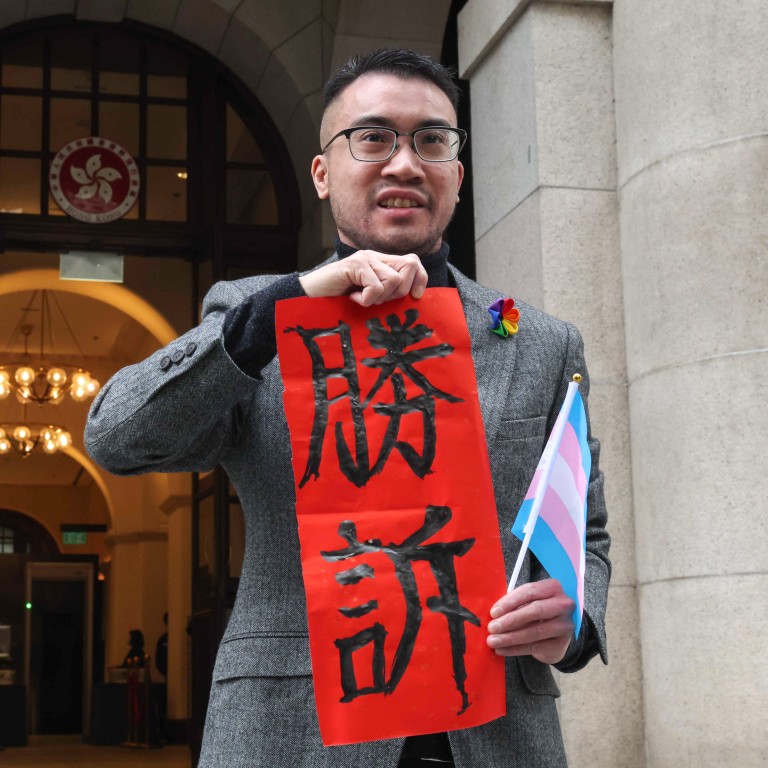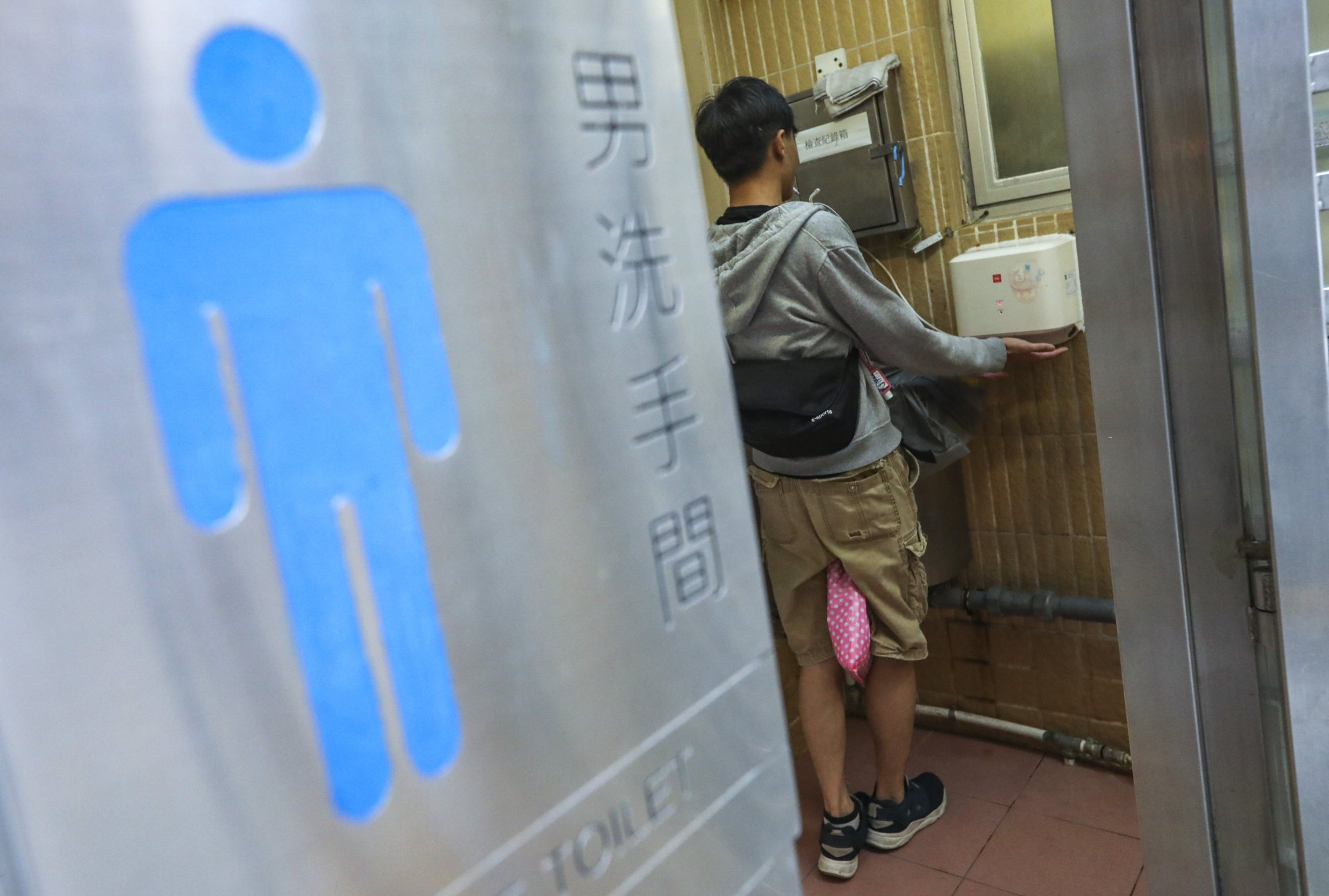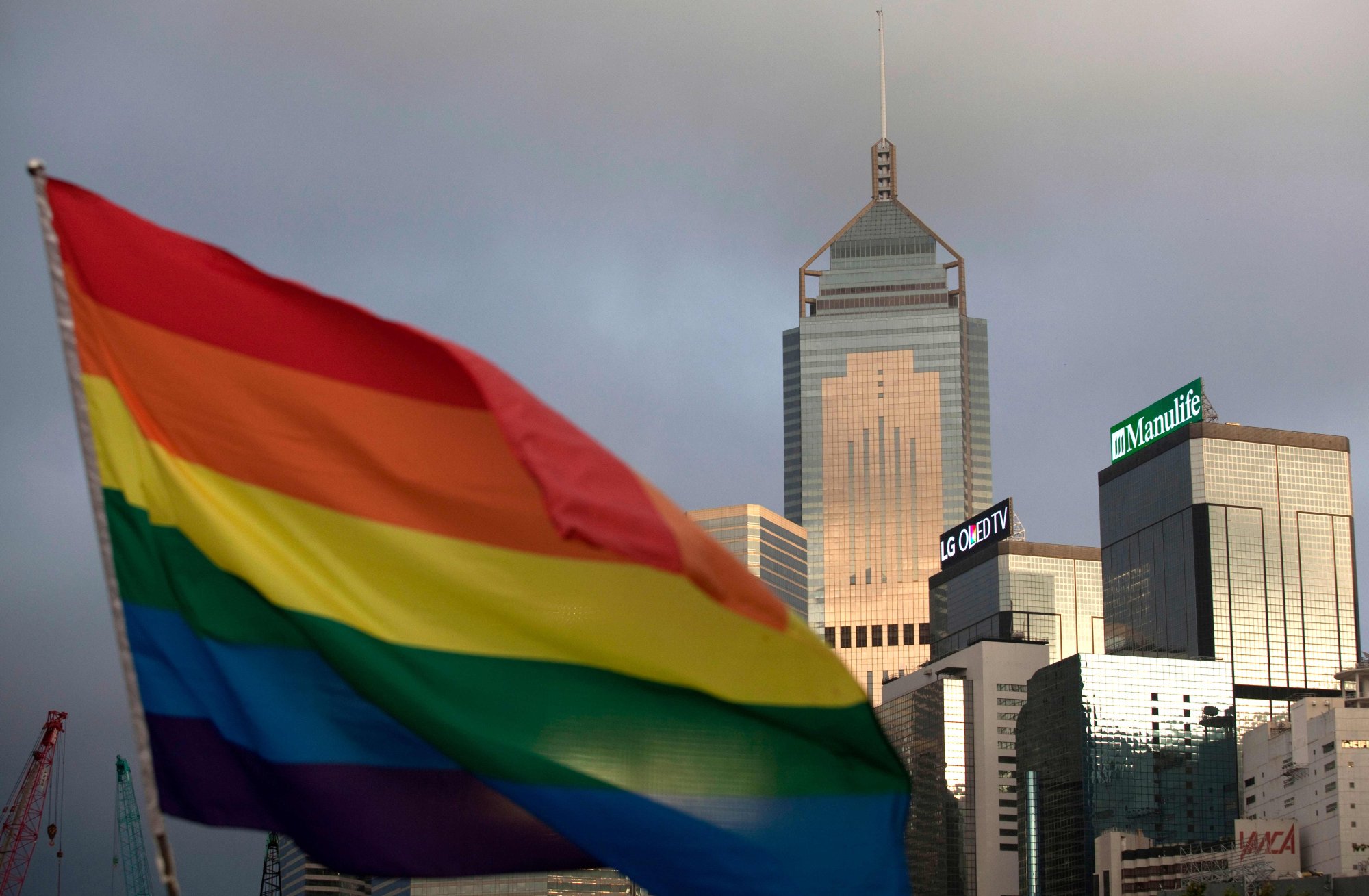
Victory by transgender people over Hong Kong ID documents sparks confusion over rules and timetable
- Court ruling to allow gender changes on ID cards causes concern over how it will be done and when
- Question marks over policies in places such as public toilets, changing rooms, hospitals and prisons remain, the Post has found
Transgender people in Hong Kong may have scored a victory over gender status on identification documents, but the court ruling has caused confusion over administrative procedures to be followed and when they would be allowed to make alterations to their papers.
Question marks over the use of public toilets, changing rooms and hospitals – places transgender people have complained about because they were categorised by the gender on their documents – were highlighted on Tuesday.
Transgender people who are jailed are also sent to prisons based on their gender at birth.
A spokesman for the Leisure and Cultural Services Department said that people could use “accessible toilets” or gender-neutral “universal toilets” regardless of their gender, or choose whether to go to a male or female toilet based on the details on their identity card.

But the authorities have yet to announce details of requirements under which a transgender individual could alter their identification documents now that the standard of a full gender reassignment surgical procedure was no longer applicable.
A government spokesman said the administration was still “studying the judgment carefully and shall seek legal advice on follow-up actions to comply with the judgment”.
He was responding to questions posed by The Post to the Immigration Department, responsible for identity cards, the Leisure and Cultural Services Department and the Correctional Services Department which asked for updates on developments.
They were speaking after the Court of Final Appeal’s ruled on Monday it was unconstitutional for the government to insist two transgender men completed gender reassignment surgical procedures before it agreed to change the status listed on their identity cards.
Rights of 2 transgender men breached over ID cards, top Hong Kong court rules
The ruling did away with the need for transgender people to undergo medical procedures, which involve genital reconstruction, and said to carry considerable risks.
But the presiding judges in the case also maintained that “it was not for the court to rewrite … policy” and emphasised the responsibility lay with the commissioner of registration.
The judges also stressed in the case filed by Henry Edward Tse and another trans man known as Q that the move was only for transgender people to better identify themselves with an appropriate personal document, without any legal effect.
The Hospital Authority said it would study the ruling and take appropriate follow-up actions, but did not discuss specifics.
Simon Wong Ka-wo, president of the Hong Kong Federation of Restaurants and Related Trades, said he had yet to see a lot of discussion in the sector on whether new toilet policies were needed.
Trans activist in Hong Kong court battle for ID card gender change publishes book
Ray Or Chuen-ting, convenor of the Fitness and Combat Sports Alliance, said there had been no discussion on the ruling by gym owners.
The Equal Opportunities Commission said the case did not fall under the anti-discrimination ordinances enforced by the body and declined to comment.
Hong Kong has four anti-discrimination ordinances, related to gender, family, disability, and race, but has still to legislate for the protection of sexual minorities.
Transgender people are often seen as small subgroup of the LGBTQ population, but statistics suggested their numbers were on the rise in the city.

Hospital Authority figures showed the number of people who had gender reassignment surgical procedures or related operations grew from 18 in 2019-20 to 21 in 2021-22.
People seeking help from the Gender Identity Clinic at Prince of Wales Hospital in Sha Tin increased from 950 to 1,040 over the same period.
Despite the uncertainties, counselling Professor Diana Kwok Kan, who specialises in mental health of the LGBTQ community at the Education University, said the judgment was the “first step of an encouraging trend,” despite some uncertainties.
“There is a shift of gender paradigm laid down in the law, not just said by anybody,” she said.
Kwok added the ruling would encourage discussions on transgender rights as Chinese society tended to pay more attention to legal affairs that concerned them directly, rather than a conceptual topic.
Hong Kong transgender man in legal push to access public toilets without fear
Gender studies academic Suen Yiu-tung, from Chinese University, said he was cautiously optimistic about the court decision.
“It has provided a remedy for the injustice transgender people have faced over the years,” he said.
He added the judgment would also likely reduce conflicts transgender people experienced in their day-to-day lives.
Suen added, however, that although the decision would stimulate public interest in finding out more about transgender people, it would also encourage opposition as the ruling would probably provoke criticism.
He highlighted there was still doubt over how the judgment would be interpreted by the authorities.
Suen explained because the case was centred on two transgender men, there was no guarantee the decision would apply to transgender women as well.
“The scope could be very narrow,” he added.


